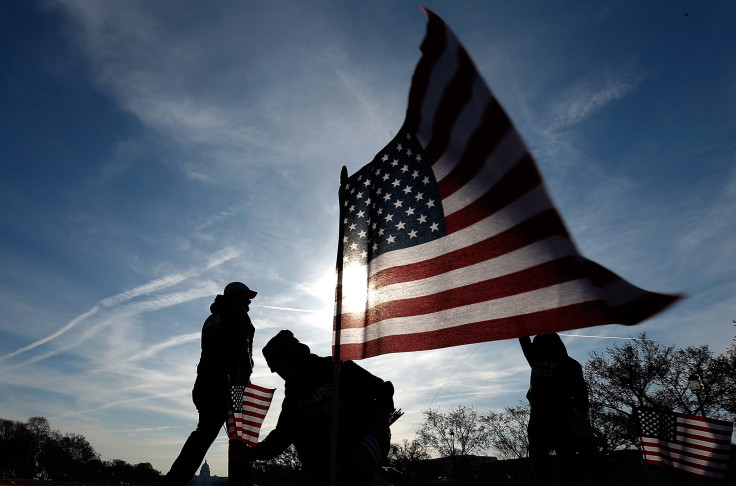USAA Seized The Stimulus Check Of A Disabled Veteran
KEY POINTS
- Stimulus bill has nothing to stop banks from seizing checks to pay down debt
- USAA seized a $3,400 stimulus check from a disabled veteran's family
- The NYT reports that smaller institutions are also seizing stimulus checks
USAA, one of the nation’s largest banks serving military veterans, took $3,400 in stimulus payments from the family of a disabled veteran, The American Prospect reported, following up on an earlier report that there is no provision in the CARES Act that would stop banks from seizing the $1,200 stimulus checks sent to Americans by the federal government to help deal with the economic fallout of the COVID-19 pandemic.
According to the wife of the veteran, a USAA representative told her that they “shouldn’t have gotten into debt in the first place” and refused to return the $3,400 to the family. The family's identity was withheld by The American Prospect because they were still in negotiations with the bank.
In a statement delivered to The American Prospect, USAA spokesperson Matthew Hartwig said that “a stimulus payment could be reduced when we execute legal garnishment or lien requirements…a reduction can also occur in circumstances when the stimulus payment is deposited into an account with a negative balance.”
The New York Times investigated the report that banks can seize stimulus checks from those who owe debts, and they also found people who have fallen victim to this practise, including those with accounts at smaller banks. The Times reported that Benji Pedro held an overdrawn account with Safe Federal Credit Union, and his $1,200 stimulus check was seized, and a representative of the credit union told him that the institution was keeping all of it.

The nation’s four largest banks, Bank of America, JPMorgan Chase, Citibank and Wells Fargo, have said they are pausing their collections on negative account balances in order to avoid the exact situation reported by The American Prospect and the New York Times.
A 2018 Pew survey indicated that over 39 million American adults “incurred at least one fee for overdrawing their bank account or having insufficient funds in the past 12 months.” The New York Federal Reserve reported that total consumer debt approached $19 trillion in the second quarter of 2019, the 20th consecutive quarter it has grown. These figures highlight the massive potential scale of the issue, and the root of the issue does not necessarily lie in the banks, but with the government not including a provision in the stimulus bill to restrict this kind of activity.
Sen. Sherrod Brown, D-OH, and Sen. Elizabeth Warren, D-MA, have pushed for Congress to halt this kind of activity. Rep. Ilhan Omar, D-Minn, who represents the military family mentioned in The American Prospect's report, said that USAA's conduct is "shameful."
"This money was supposed to go to Minnesotans who are struggling and instead the administration is using it to help big banks who don’t need the cash. I, along with my colleagues in Congress, are doing everything we can to put an end to this. The Treasury Department and the IRS have the authority to prohibit this cruelty, and they should.”
© Copyright IBTimes 2024. All rights reserved.




















